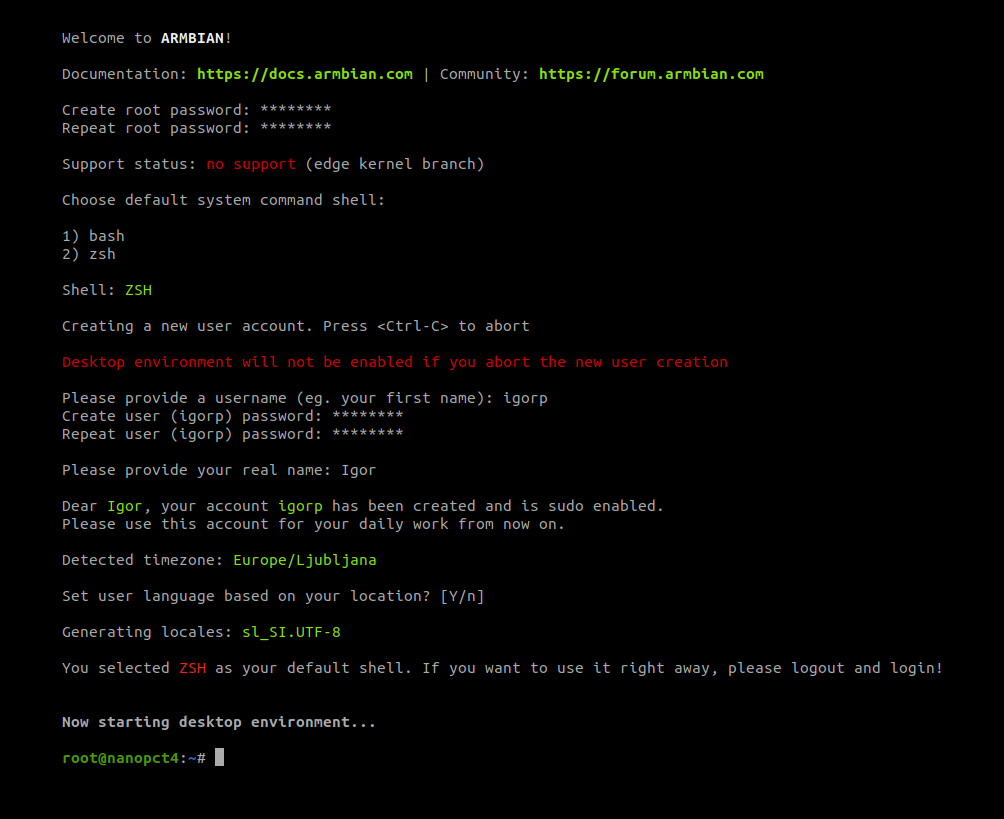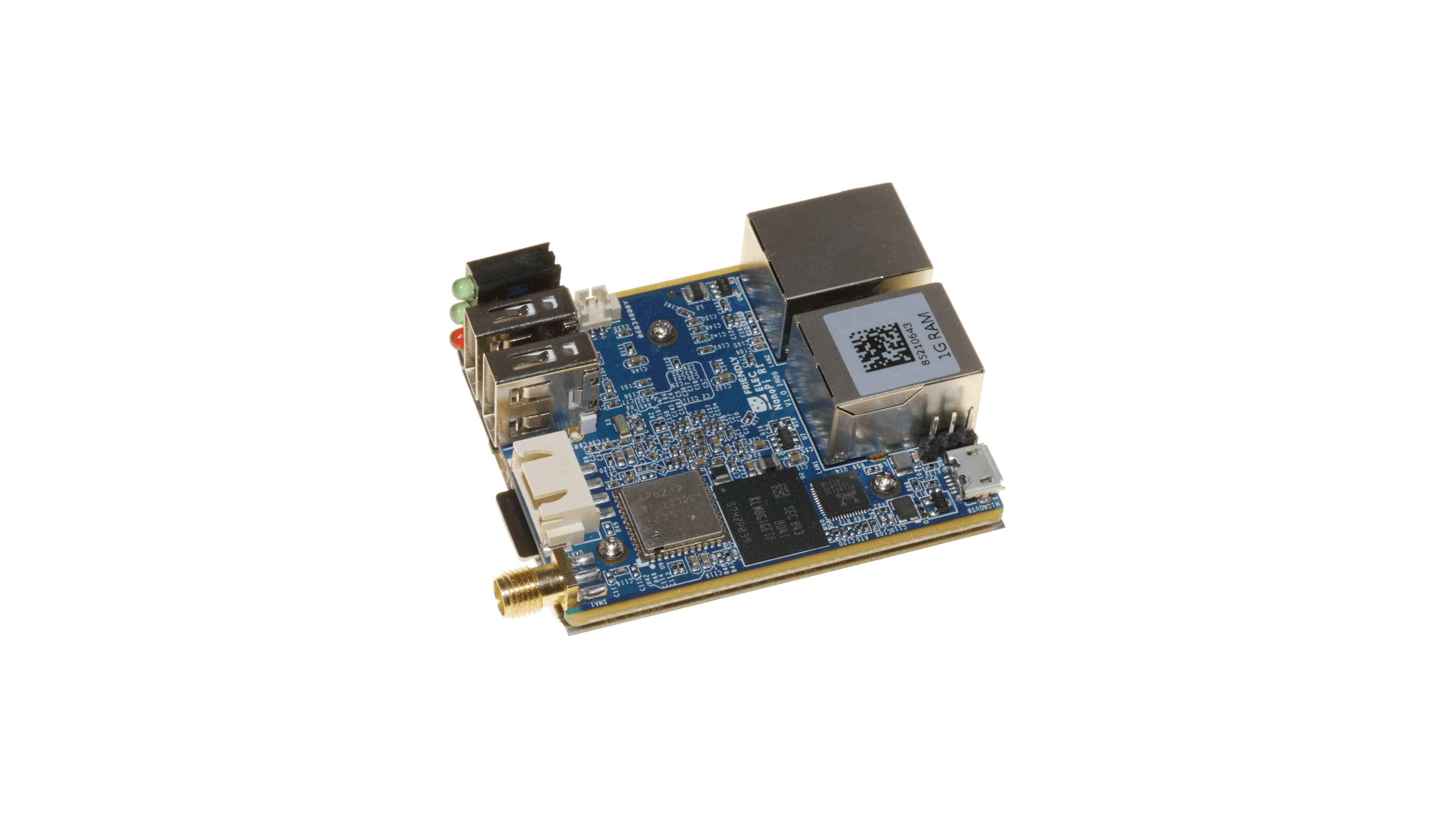What Does Community Support Mean?
Community maintained targets have full featured Armbian OS support but lack quality control imposed by Armbian standard support criteria. Boards are supported / maintained at least on the level of 3rd party Linux distributions. They are maintained (or not maintained) by community members (like you). These builds are provided by the Armbian project as a service to the community. They are automatically generated and untested.
What you can do to help lifting support status?
- support users of this board in our forums
- stand up as a maintainer and start maintaining the board
- provide tests results prior to point release and propose lifting support status
- serial console is enabled on UART1, which is exposed on chasis,
- mUSB console is also enabled for login
- Bluetooth is not yet enabled.
- One Ethernet device gets random MAC
After you download and boot?
Basic OS configuration is conducted at first boot. You are asked to set a root password, normal user and confirm your, automatically determined, language settings. If your hardware has internal media, you might want to transfer your OS to it. You can also choose to configure your OS first, setup applications, enable services and install to internal media later.
armbian-config
You can select different login shell (ZSH), enable 2FA for your SSH, enable virtual read-only file-system, switch to rolling releases, ... and more. Armbian config tool helps you configure your network (static, dynamic, enabling hotspot). Once you are done configurion your OS, you can proceed to software section. Armbian config provides clean and fast way of installing great selection of popular software titles. If you plan to use your board for running a home automation, file server, ad blocking, downloading media, ... we got you covered.
Different images? Missing features? -> Download SDK Looking for compatible accessories? Want to participate in development?
Server images with Armbian Linux v6.6
Build Date: Mar 27, 2025
| Distro | Variant | Extensions | Torrent | Integrity | Size | |||||
| Server / CLI | SHA | ASC | 395.4 MB | |||||||
| * Server / CLI images comes with Network Manager and include packages like armbian-config, armbian-zsh etc. | ||||||||||
Minimal/IOT images with Armbian Linux v6.6
Build Date: Mar 28, 2025
| Distro | Variant | Extensions | Torrent | Integrity | Size | |||||
| Minimal / IOT | SHA | ASC | 240 MB | |||||||
| * Minimal images have very small footprint. They come only with essential packages and build-in systemd-networkd. They are optimised for automation and production deployments. | ||||||||||
Specifications
1000tx 100tx 1wire 32bit 4 core CAN UASP bluetooth docker eMMC i2c spi wifi wireguard Allwinner H3
* Specifications differ from hardware revision, model and software support level
FAQs

Support is provided in one of two ways:
- Free support is provided via general project search engine, documentation, community forums or IRC/Discord. Keep in mind this is mostly provided by our awesome community members in a best effort manner and therefore there are no guaranteed solutions.
- For commercial or prioritised assistance:
- book a an hour of professional consultation,
- consider becoming a project partner.
- Reach us out at https://armbian.com/contact,
dpkg -i linux-image-[branch]-family.deb linux-dtb-[branch]-family.deb. In that process you can enforce many customisation. 


